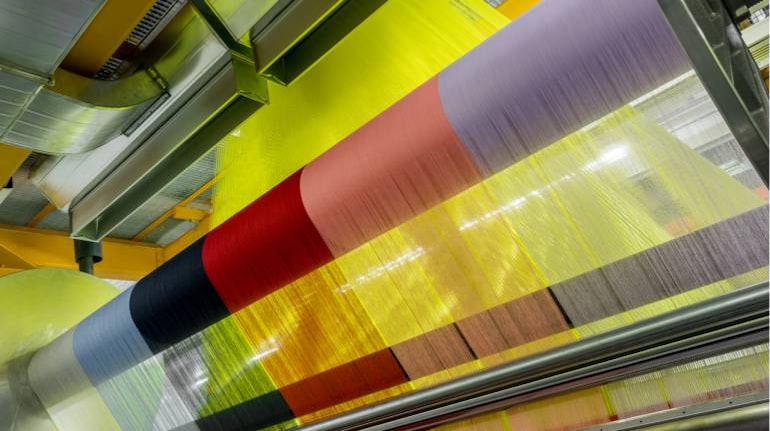



The Union Cabinet at a meeting on September 8, approved a production-linked incentive (PLI) scheme for the textiles sector. The five-year scheme offers Rs 10,863 crore to the synthetic or man-made fiber (MMF) and so-called technical textiles segments.
The scheme that will provide incentives for the production of these products is expected to create 750,000 new jobs and help Indian textile producers switch from cotton textiles to the new products that account for two-thirds of the global textile manufacturing, textiles minister Piyush Goyal said on Wednesday.
The package is expected to boost the textile sector; it will not only promote high-value MMF fabrics and apparel as well as technical textiles, but also encourage industry to add more capacity and reinforce its workforce.
Man-made fibers are produced by humans through chemical synthesis as opposed to natural fibers that are directly derived from living organisms.
MMFS such as nylon, polyester, acrylic, rayon and polyolefin dominate global apparel production.
Technical textiles are a futuristic segment of textiles used in a vast array of applications such as agriculture, roads, railway tracks, military purposes and disaster management.
"The textile industry indeed has a tremendous potential and this PLI was long due, the country has abundant resources of raw materials and industrial setup with required labour. This Incentive scheme is expected to further benefit and optimise the firms," said Gaurav Garg, head of research at CapitalVia Global Research.
The incentive plan has been designed in such a way that the new and increased investments and capacity building in man-made fibres is rewarding. Tax rebates and refunds are expected to aid manufacturers and increase the competitiveness of Indian textile products in markets across globe.
Sandeep Matta, founder of TRADEIT Investment Advisor, said the scheme had been designed to promote high-value MMF fabrics, garments, and technical textiles and encourage the industry to augment its capacity; it would also expand the participation of tier-3 and tier-4 cities in the formal economy.
It will support other related textile domains that will lead to economies of scale and make India an integral part of the global supply chain, said Rajiv Kapoor, Vice-President at Trustline, a securities firm.
Stocks to benefit from PLI scheme
The scheme is expected to benefit organised players in the textile, apparel and retail segments, said Garg of CapitalVia Global, adding that it would boost Trent, Raymond Group and KPR Mill.
Trent had seen decent sales growth and return on equity (ROE) until FY20 but could not keep it up in FY21 due to onslaught of the Covid-19 pandemic. With the opening up of the economy and normalization by way of vaccination, the stock is expected to benefit.
Raymond was able to generate good cash flow from operations for the year ending March 2021 and with the PLI scheme the stock is expected to perform well.
KPR Mill has been able to maintain consistent revenue growth and also consistent growth in operating profit margin. The stock seems to be delivering decent ROE and return on capital employed (ROCE) year on year, and offers a good opportunity.
The scheme will be a boon for organised players such as Welspun India, Raymond, Siyaram Silk Mills, Alok Industries, Ambika Cotton Mills and so on, said Matta of TRADEIT Investment Advisor.
Kapoor of Trustline picked Arvind, Raymond, Bombay Dyeing and Manufacturing, Bombay Rayon Fashions, Grasim Industries, Welspun India, KPR Mill, Nitin Spinners and Gokaldas Exports.
Disclaimer: The views and investment tips expressed by investment experts on Moneycontrol.com are their own and not those of the website or its management. Moneycontrol.com advises users to check with certified experts before taking any investment decisions.
Discover the latest Business News, Sensex, and Nifty updates. Obtain Personal Finance insights, tax queries, and expert opinions on Moneycontrol or download the Moneycontrol App to stay updated!
Find the best of Al News in one place, specially curated for you every weekend.
Stay on top of the latest tech trends and biggest startup news.